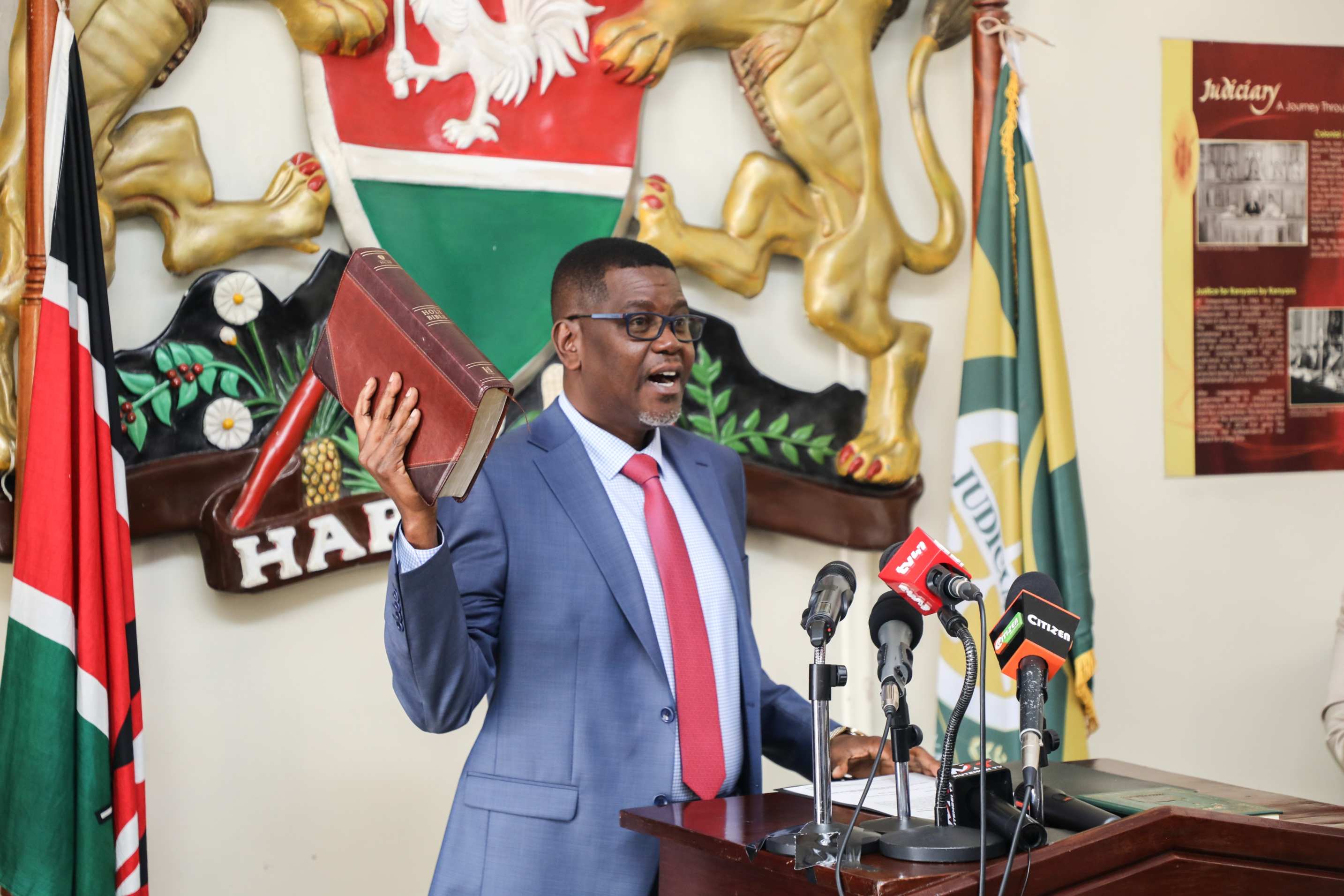NPSC chair Komora outlines reforms, targets 25,000 new police recruits

Komora promised to uphold the Constitution with diligence and work closely with stakeholders to restore public confidence in the police.
Amani Yuda Komora has formally assumed office as the new Chairperson of the National Police Service Commission (NPSC), taking oath on Thursday with a pledge to steer reforms aimed at building a professional, accountable and citizen-focused police service.
In his address after the swearing-in, Komora promised to uphold the Constitution with diligence and work closely with stakeholders to restore public confidence in the police. He noted that both officers in uniform and Kenyans at large hold high expectations for a service that is trusted and effective.
“I assume this office with full awareness of the heavy responsibility it carries,” Komora said.
“The men and women in uniform who look to this Commission for leadership, as well as the millions of Kenyans who deserve effective and trusted policing services, have legitimate and high expectations.”
He identified his immediate priority as restoring unity and teamwork within the Commission, cautioning that divisions would undermine its mandate.
“We will build a cohesive and unified NPSC, taking into account that divisions would undermine our ability to achieve our mandates. Unity of purpose will be our focus,” he stated.
Komora also outlined his broader vision of transforming the National Police Service from what he described as a “militaristic force” into a people-centered institution.
“This is not just a name change—it’s a cultural and institutional shift. The Kenyan public must begin to see the police not as enforcers, but as partners in community safety and development,” he added.
As part of this transformation, Komora revealed plans to strengthen manpower in line with the government’s Bottom-up Economic Transformation Agenda (BETA).
He said 25,000 officers will be recruited by 2027, beginning with 10,000 in the current financial year.
“We are significantly understaffed when compared to our population. Improving the police-to-civilian ratio is essential not just for public safety but also for reducing officer burnout and improving service delivery,” he said.
He assured that the recruitment will be carried out transparently in partnership with the Inspector General of Police, with fairness, merit and regional balance as guiding principles.
On the long-standing challenge of corruption within the service, Komora issued a strong warning and promised decisive action.
“The Commission will partner with the Ethics and Anti-Corruption Commission (EACC) and other agencies to identify and seal institutional loopholes that facilitate corruption,” he said.
Acknowledging that trust in the police remains fragile, Komora pledged to strengthen accountability systems and disciplinary mechanisms to deal with misconduct and restore the integrity of the service.
